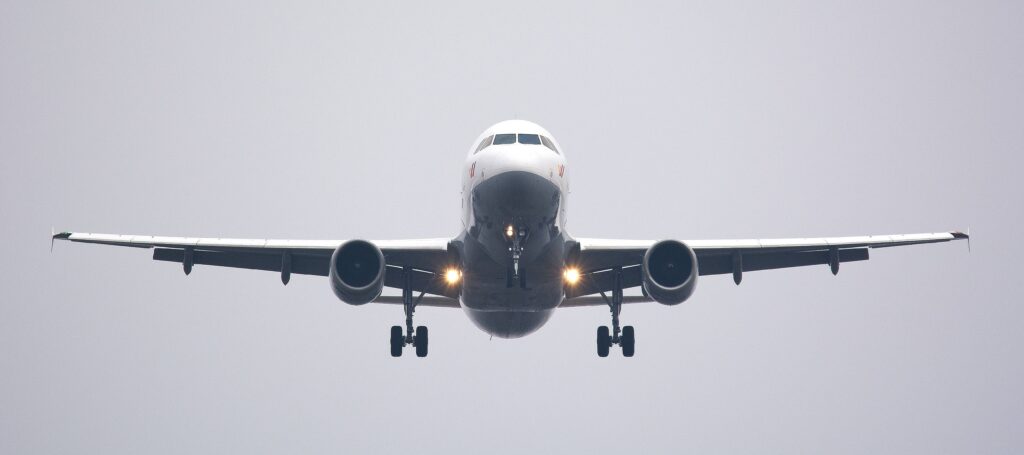
Until recently more than 90% of the world’s goods were transported by sea freight, with 70% shipped as containerised cargo. Ocean or sea freight has been responsible for such volumes largely due to costs, with ocean freight shipping charges often more than 12-16x less per kg than that of air cargo. This is however no longer the case, and as a result of the culmination of a number of key factors the traditional cost-benefit balance of ocean freighting has been shifted. So, is sea freight still better value for money for your business, or have things changed?
For more information about domestic and international sea and air freight rates, or any of the other services we offer, call us today on 01293 554620.
Air freight vs sea freight
The decision as to whether to send goods by air or sea freight is decided by factors such as size, weight, contents and of course the speed at which goods are required to be delivered. Whilst air cargo costs have typically been far higher (12-16x more) than that of sea freight, delivery speeds were often around 30x faster.
Due to a variety of factors including the Covid-19 pandemic, Brexit and other extenuating circumstances including the ‘Ever Givens’ blockage of the Suez canal, these figures have changed. Increased demand, a shortage of containers and personnel and complications loading and unloading cargo have meant that the price differences between air and sea freight have decreased considerably whilst disparities between delivery times has increased exponentially.
Based on this data, choosing the optimum freight service for your business purposes becomes a difficult task.
Which freight option is best for my business?
Cost
Air freight
Air freight prices are calculated by one of two methods:
- Actual weight (gross weight) or
- Volumetric weight (dimensional weight)
As a result, goods shipped by air are typically either of a high value per unit, or time sensitive goods including pharmaceuticals, electronics and perishables.
Sea freight
Sea freight costs are calculated on a price per container basis, typically either 20ft or 40ft, or on a cubic metre basis if goods are less than a container load.
Whilst costs have increased dramatically, they are still considerably cheaper per kg than the price of air cargo. Due to the sheer capacity of sea freighting it is also possible to ship much larger goods in comparison to what is permitted by air.
Contents
Air freight
Not only do planes offer limited capacity, but not all goods can be sent by air freight and some goods including hazardous substances such as pharmaceuticals actually require specific licenses. As an IATA (International Air Transport Association) associated company, we’re fully accredited to handle hazardous and dangerous cargo and are covered to import and export this worldwide.
View Seaspace International’s accreditations.
Sea freight
Sea freight allows for considerably larger and heavier goods to be transported, and is therefore the preferable option if moving goods in high volume or above a certain size. It is worth considering that sea freight can experience a more turbulent journey than air cargo and improperly packed goods may incur damage.
Timescale
Air freight
Dependent on the nature of the goods being shipped the cost of air freight rates is sometimes trumped by the requirement to meet urgent deadlines. This is especially true of any goods destined for a fast paced commodity market in which time is of the essence. As an example, air cargo arriving from Asia to the UK can often take as little as 3 days.
Sea freight
In comparison, sea freight has relatively slow transit times and for the same journey it could potentially be up to 35 days. In addition, the impact of the above mentioned factors has led to many ships being delayed in port or unable to load/unload cargo.
The importance of timescale is therefore entirely dependent on the nature of goods being shipped.
Environmental impact
Air freight
Air freight leaves a considerably larger carbon footprint than sea based shipping. Airplanes emit 500 grams of CO2 per metric ton of freight per km of transportation, and often make 3-4 journeys per day on certain routes.
Sea freight
By contrast transport ships emit only 10 to 40 grams of CO2 per km. A study by the UK government shows that planes create 44 times more CO2 than ships when carrying the same freight over the same distance.
Reliability
Air and sea freight
Both air and ocean freight offer the sender considerable peace of mind and goods typically arrive with a 99.99% success rate.
Our sea and air cargo services
In addition to international air, land and ocean cargo shipping we offer a range of other services including, but not limited to:
- Customs clearance
- Warehousing and storage
- Pick and pack service
- Freight, export and shipping documentation
With more than 30 years’ industry knowledge and experience your business could benefit substantially from using our internationally recognised freight forwarding service. Our pre-established worldwide connections enable us to negotiate highly competitive prices for our customers, helping them to save money as well as ensuring that goods are shipped without unwarranted difficulty or delay.
Get in touch
Founded in 1988, Seaspace International Forwarders are global freight forwarding specialists. We transport a huge range of products by land, sea and air freight for a wide range of industries and provide full door-to-door supply chain solutions with services including customs clearance, warehouse storage, distribution and consultancy.
If you have a question regarding any of the topics discussed in this blog, or would like to speak about your business shipping requirement, call us today on 01293 554620.
Alternatively complete our online contact form and we’ll be in touch at a time convenient to you.
